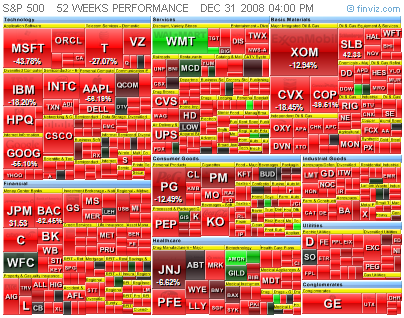More than 20% of all US mortgages are under water. If you owe more on your mortgage than the current market price of your house is, what are your incentives to keep it? In this real estate market environment, it would be financially more logical to walk out and rent a similar property for smaller monthly payment. Lower housing prices lead to more defaults on mortgages, more people walking away and more houses offered to sell. In an environment of gradual decline of housing prices, there are not enough quality buyers, who would step up to become owners. Those, who will qualify for a low interest mortgage, already have a house and are not interested into entering the low liquid, low return house lending business. Many of those, who are willing to purchase a house, are not qualified for a low interest loans. Why banks would lend to low income people at 5% if housing prices are expected to continue to fall another 15% this year. In a year, those same people will have negative equity on their house and the same problem will worsen.
George Soros claims that the only exit out of the situation is to ask all banks to reduce the principles of people’ mortgages to 80% of its current market price. In this case, even if prices slide another 10%, people will still have an incentive to stay. The condition, under which this could be done, is owning only one house, living in it and an obligation not to sell it within the next 5 years. The government will use taxpayers’ money to offset part of this principles’ reducing, but it won’t be able to cover all of it. Banks will have to take part of the losses, which will send many of them into oblivion. The government will try to save some of them by buying bank shares, which will wipe out all current shareholders and will kill incentives for private money to enter old financial names.
An alternative solution of the housing problem would be to provide regulatory and financial incentives to foreigners to invest directly in the US housing market. Politically this might be unacceptable for many locals, but don’t forget that foreign money has been covering the deficit for the past 20 years anyway. Turn your creditors into your shareholders. Personally, I believe this would stop the decline in the housing market, even faster than many expect.
To conclude: If nothing is done, more people will default and banks will lose more money. If principles are reduced, banks will lose money. If the government starts buying shares from the banks, the current shareholders will be wiped out. This is why I believe that in 2009 we will see another 30% decline in stock prices of major financial institutions. Some regional entities will have to close doors. The system will clean out and there will be fewer, but stronger players left on the field.
Concentration of power in several entities is potentially very dangerous since a possible failure of one will have much more dire consequences on the economy as a whole. I hope the government will give fiscal and regulatory incentives to many entrepreneurial people to create new banking institutions with solid balance sheets and to work for decentralization of the financial industry.
